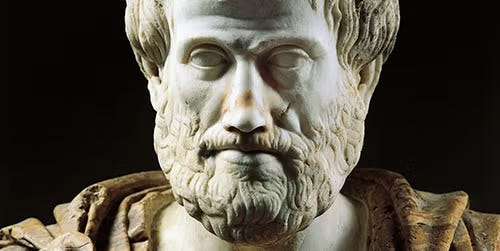Reclaiming Anger
“Anger is an emotion of the mind rousing itself for the restraining of faults.” —Lactantius, De ira Dei1
There’s a longstanding tendency to condemn anger as a vice that people of good will ought to shun. This position is especially prevalent among Christians of a progressive, liberal, or even just mainstream bent. Jesus wants us to love, and anger gets in the way of loving one’s enemy. Anger is a passion that inevitably leads to violence. Anger displeases God. God never gets angry. And so on.
Conservative and MAGA types who call themselves Christian are much less troubled by scruples when it comes to anger. In fact, their intemperate rage about any number of issues involving sexuality, politics, and culture, a rage they insist mirrors God’s, probably helps explain why so many of us conclude that anger is immoral. We see and deplore the harm theirs inflicts.
But what this means is that we allow them to hijack the meaning of anger, just as we’ve all too often allowed them to hijack the word “Christian.” It’s time to reclaim anger as a righteous response to evil. Because in fact, God does get angry, and so should we—but not in the way that rightwing Christians do.
Lactantius’ De ira Dei
When it comes to reclaiming anger, we could do worse than consult a short book: De ira Dei (On the Anger of God), written by Lucius Cæcilius Firmianus Lactantius (c. AD 240-320).
Lactantius (like St. Augustine’s mother Monica) was a Berber from north Africa. As a young adult he taught rhetoric in Nicomedia (present-day Turkey) until forced to resign when he converted to Christianity. He may’ve returned to Africa for a few years, but eventually, by dint of his reputation for learning and stylistic elegance (he was often called the “Christian Cicero”), he was summoned to the court of Constantine to tutor the emperor’s son Crispus. It’s not entirely clear when Lactantius died, but it was certainly before Crispus, having foolishly overstepped the mark, was executed by his father.
Lactantius’ defense of anger in De ira Dei is ingenious, reminiscent of the move Plato makes in the Republic. In order to envision the contours of a just society, Plato drew an analogy between it and a perfectly rational and moral person. In one broad argument, he covered both the micro and the macro dimensions of justice: the micro (the person) sheds light on the macro (the society).
The explicit purpose of Lactantius’ book is to explore whether it’s appropriate to ascribe the “passion” of anger to God. In the Republic, Plato labored to define justice in both individual and social contexts. Similarly, Lactantius has to offer a definition of anger that applies to both God and mortals. Once again, micro and macro dimensions intersect. In this case, the macro (God) sheds light on the micro (humans).
Four Possibilities
To determine if it’s ever appropriate to ascribe anger to God, Lactantius scrutinizes four possibilities:
“Either anger must be attributed to God, and kindness [gratia] taken from Him; or both alike must be taken from Him; or anger must be taken away, and kindness attibuted to Him; or neither must be taken away. The nature of the case admits of nothing else besides these.” (II.260)
Lactantius outright rejects the first possibility as historically anomalous and existentially unthinkable. “No one has ever said this respecting God, that He is only subject to anger.” (III.260) Moreover, if “God is the author of evils only,” what hope is there for humanity? (III.260) There’s also a metaphysical problem. Since we clearly discern at least some good in human affairs, we would have no way to account for its reality except by positing the existence of an alternative benevolent deity that struggles to counteract the baleful influence of the first. But this is to lapse into Manichaeism.
The second possibility, says Lactantius, is held by the Epicureans who claim “that as there is no anger in God, so indeed there is no kindness.” (IV.260) In other words, God lacks passion of any kind, positive or negative. Any kind of passion, and especially anger, is a response to external circumstances that disrupts psychic equilibrium. But God, being perfect, is self-contained, “always inactive [semper quietus], at rest and unmoveable,” and thus impervious to the discombobulation of external influences. (IV.261) God is impassable, an Unmoved Mover.
The problem here, says Lactantius, is that a God who reacts to nothing isn’t really a God. “What else does one say, who takes from God all power and all substance [totam vim, totam Deo substantiam], except that there is no God at all?” (VI.261) And even if we concede that the Epicurean understanding of God deserves consideration, the opportunity cost is a devaluation of rectitude in mortals. A God incapable of kindness or anger is obviously morally indifferent to human behavior. The righteous go unrecognized and “the guilty and the wicked, who hope for impunity for their sins,” get exactly what they desire: a get-out-of-jail-free card. (IV.261)
The Stoics, balking at going as far as the Epicureans, defend the third possibility. They recognize the moral inadequacy of an Unmoved Mover. So their alternative is to “say there is kindness in God, but not anger.” (V.261) God is above the “littleness of mind” [anami pusillitatum] that seeks payback for even the slightest of offenses, if for no other reason than that it’s impossible to injure him. So “anger is a commotion and perturbation of the mind which is inconsistent with God.” (V.261) It would be both “disfiguring and injurious” to his divinity. (V.262) Finally—and for the Stoics as read by Lactantius, this is the real kicker—an angry and all-powerful God is too frightening to contemplate.
“If man, when he has authority and power, inflicts widespread injury through anger, sheds blood, overthrows cities, destroys communities, reduces provinces to desolation, how much more is it to be believed that God, since He has power over the whole human race, and over the universe itself, would destroy all things if He were angry.” (V.261)
Lactantius’ response to the Stoics is that their denial of divine anger makes it difficult to believe in God’s kindness—that is, that God actually cares for morally upright mortals. “If God is not angry with the impious and the unrighteous, it is clear that He does not love the pious and the righteous.” (V.262) The point is that if God truly loved humans, God would be angry at those individuals and groups who oppress or harm others. So to deny divine anger is to call divine benevolence into question as well. In fact, concludes Lactantius, the Epicurean denial of both kindness and anger when it comes to God is more consistent than the Stoic position of saving the one and jettisoning the other.
The fourth position, that God possesses the capacity for both anger and kindness, is endorsed by Lactantius. He offers two arguments in support of it.
(1) To begin with, a distinction needs to be made between “just and unjust anger” [iram justam et injustam]. (XVII.274) The first three positions Lactantius examined failed to do this. For them, all anger is inevitably injustam: a sinister, evil, malignant passion that must be suppressed at all costs. But as Abraham Heschel pointed out some seventeen centuries after Lactantius, although “anger is something that comes dangerously close to evil, it is wrong to identify it with evil.”2 This is also Lactantius’ position.
Lactantius explicitly allies himself with the Peripatetic School’s treatment of anger: “the definition of Aristotle does not differ greatly from ours,” he says. (XVII.274) In his Nicomachean Ethics, Aristotle argued that good-temper or mild-manneredness is a virtue, with inirascibility or indifference being its deficiency and irascibility or hot-temper its excess. Irascibility is unjust anger; good-tempered or controlled anger is just. The wise person, guided by prudence or phronesis, knows how to distinguish between the two. As Aristotle says, “he who is angry at the right things and with the right people, and, further, as he ought, when he ought, and as long as he ought, is praiseworthy.”3
Divine anger is good-tempered, never irascible. It is not petulant or vengeful, spontaneous or thoughtless, intractable or overwrought. It directs itself at the right thing, at the right people, and in the right way. God, the very fount of virtue, by definition can only exercise iram justam.
(2) But how does God (and we) know the right thing, people, and way? This is where Lactantius’ second argument comes in: God’s anger is prompted by acts of injustice and wickedness. In defending this claim, Lactantius’ intersection of the macro (God) and the micro (humans) is on full display.
“It cannot fail to be, that he [i.e., a mortal] who is just and good is displeased with things which are bad, and that he who is displeased with evil is moved when he sees it practiced. Therefore we arise to take vengeance [ergo surgimus ad vindictam], not because we have been injured, but that discipline may be preserved, morals may be corrected, and licentiousness be suppressed. This is just anger; and as it is necessary in man for the correction of wickedness, so manifestly is it necessary in God, from whom an example comes to man.” (XVII.274)
Just anger, in other words, “is an emotion of the mind [motus animi] arousing itself for the restraining of faults.” (XVII.274) It is psychologically proper for humans to respond with disapproval—what we might call righteous indignation—when we encounter wicked behavior in our fellows. Just as importantly, anger is pragmatically necessary for motivating humans to forestall or halt evil. How much more proper, then, for God to respond angrily to the wicked mistreatment of others.
In neither humans nor God is just anger motivated by anything other than a desire, born from kindness, to condemn and halt the ill-treatment of others. What Walter Brueggeman perceptively says of divine anger or “vengeance” in the Psalms—“God’s vengeance is understood as the other side of God’s compassion”4—can be said of humans as well. “To be justly angry,” concludes Lactantius, “is the part of reason […], plainly in accordance with justice and wisdom.” (XVII.274)
And it is also in accordance with that part of the will which is love. Although Lactantius steers clear of scriptural allusions in De ira Dei, wishing as he does to defend anger with exclusively philosophical arguments, it’s clear that his analysis is compatible with what both the Hebrew prophets and Jesus say and do in response to injustice. They call out its perpetrators; they defy it with words and actions; and they do so in the name of God and out of loving compassion for its victims.
Bumper Sticker Truth
If Lactantius is right, and I think he is, Christians are morally obliged to respond with iram justam when we run up against structural evil and innocent suffering. We should always be on guard that our indignation is righteous, unsullied by selfish or malevolent motives, never forgetting that the proper foundation for just anger is compassion. Otherwise, falling into irascibility is always a danger. But moral indifference to evil—Aristotle’s inirascibility—whether born from cowardice or callousness, is unacceptable as well. It not only idly and culpably stands by while others suffer; it also fails to honor God.
That so many of us couldn’t or wouldn’t embrace the virtue of just anger in recent years has resulted, as I mentioned at the beginning of this essay, in handing over the word to rightwing and MAGA Christians, who by Lactantius’ reckoning almost always forment iram injustam, anger fueled by hatred and scorn. Had we been more forceful in a rightously angry defiance of the poison they spew, the country might not now be sliding into authoritarian rule and “Christian” anger associated in the popular mind with malice, intolerance, and oppression.
The old bumper sticker slogan “if you’re not angry, you’re not paying attention” is in the spirit of Lactantius as well as the Hebrew prophets and Jesus. So fellow Christians, it’s time to show we’re heeding what’s happening around us by reclaiming anger. God pays attention. So must we.
###
The translation of Lactantius’ De ira Dei I’ve consulted is by William Fletcher, in Ante-Nicene Fathers, ed. Alexander Robertds and James Donaldson (Peabody, MA: Hendrickson Publishers, 1994), Volume 7, pp. 259-280. The Latin text may be accessed here. Chapters and pages for quotations are given parenthetically in the text.
Abraham Heschel, The Prophets (New York: Harper Perennial, 2001), p. 260.
Aristotle, Nicomachean Ethics, trans. W.D. Ross in The Basic Works of Aristotle (ed) Richard McKeon (New York: Random House, 1941), IV.1135b.32, p. 996
Walter Brueggemann, Praying the Psalms (Winnona, MN: St. Mary’s Press, 1993), p. 62. The entire prophetic tradition agrees with Brueggemann’s claim. As Micah representatively says,
God does not retain His anger for ever
Because He delights in love.
He will again have compassion over us. (7:18b-20a)







There’s the saying, “Hate the sin, but love the sinner,” which might apply to this.
It never occurred to me to feel guilty for the anger I feel toward the Republicans in this country. I feel they should feel guilty for being so passive in not stopping Trump. They need to wake up.